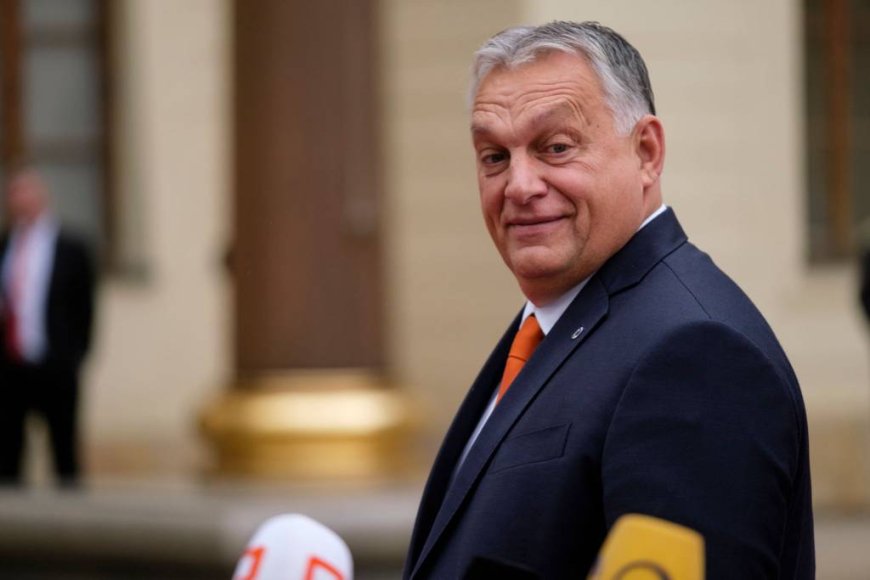Hungary's Viktor Orbán: A Game-Changer in the Ukraine Dilemma?
In recent months, the European Union (EU) has been confronted with a formidable challenge: the lack of unanimity among its members regarding the support of Ukraine. Hungary, under the leadership of Viktor Orbán, has emerged as the most fervent opponent of comprehensive backing for Ukraine, vetoing the EU subsidy budget for Kyiv.

This contentious issue has laid bare the divisions among EU countries, prompting some members of the European Parliament to call for the cancellation of Budapest’s veto power in order to secure approval for a support budget allocated to the war in Ukraine.
But here the question arises: What motivates Orbán's resistance? Recognizing Ukraine's significance to the European Union, the seasoned Hungarian Prime Minister has skillfully brokered a crucial agreement with key European leaders on Ukraine. Orbán's discussions with Charles Michel, President of the European Council, followed by talks with French President Emmanuel Macron and German Chancellor Olaf Scholz, culminated in a delicate deal with Budapest agreeing to Ukraine's potential membership in the European Union. In return, the EU accepted the release of a portion of Hungary's blocked budget, which was frozen due to the country's lack of progress in implementing certain judicial reforms. However, some Western observers believed that the allocation of over 10 billion euros to Hungary would appear to be bribery, warning that Hungary's recalcitrant actions would persist.
It was shortly after receiving these funds that Orbán vetoed the aid budget for Ukraine, sending a clear message that he is disinclined to cooperate with Brussels. Orbán has consistently voiced his opposition to providing aid to Ukraine and famously referred to Putin as his esteemed friend, creating an unpredicted challenge to the EU’s foreign policy.
Orbán's objective appears to be the erosion of negotiations concerning Ukraine within the European Union. In his most recent statement, he expressed willingness to engage in further dialogue with European leaders to address the challenge of the budget veto. However, Hungary has decried the corrupt government structure in Ukraine, contending that support for Ukraine translates into support for corruption. Nevertheless, the desire to engage in dialogue and attempt to resolve the issue ahead of the February meeting may bode well for the EU, as it could pave the way for arduous negotiations at the highest level.
In addition, some experts argue that Orbán’s commitment is questionable, as he appears to be playing a strategic game with the European Union. They assert that Hungary is seeking to buy time and prolong negotiations until the European Parliament elections. With high hopes for these upcoming elections, Orbán anticipates a shift in the European political landscape, one that aligns with Hungary's perspectives. In fact, by joining forces with like-minded leaders, Orbán aims to advance his agenda unimpeded and reap the benefits of EU membership.
European leaders must now confront the reality that the public opinions of European nations and many of their leaders no longer converge as they once did. The ongoing conflict in Ukraine has introduced further challenges to Europe, necessitating the union's preparedness for dramatic decisions across various domains. While key EU members, such as France and Germany, emphasize their unwavering support for Ukraine, the reduction of the support budget to 54 billion euros underscores the difficult economic situation they face. Moreover, countries with more vulnerable economies will be disproportionately impacted if the war persists, potentially exacerbating the fissures within the European Union.
Presently, Orbán may seem to be an ostracized leader within the European Union. However, should he succeed in his endeavors, it is conceivable that more leaders may rally behind him in the future, forcing the EU to reassess its approach to the conflict in Ukraine. If the divisions among leaders continue to widen, Europe may be compelled to change its trajectory to ensure the union's very existence.













































